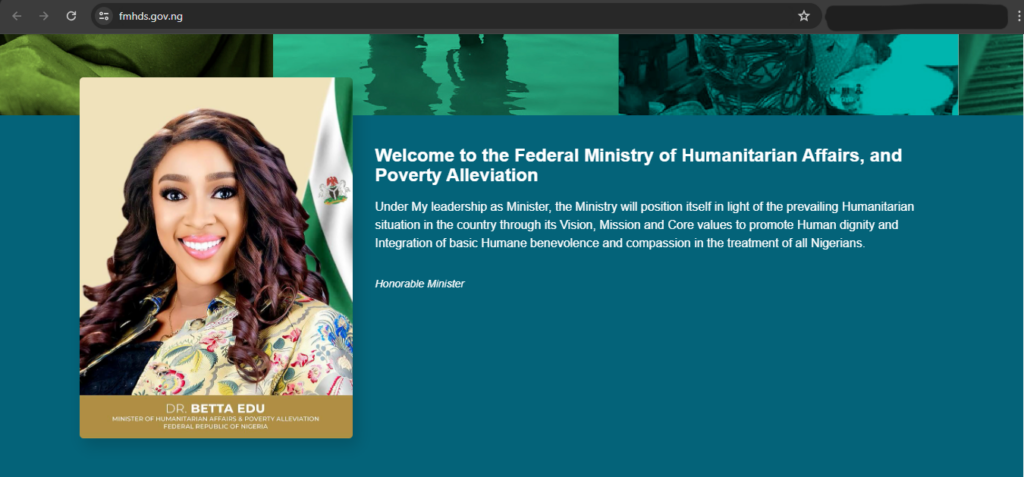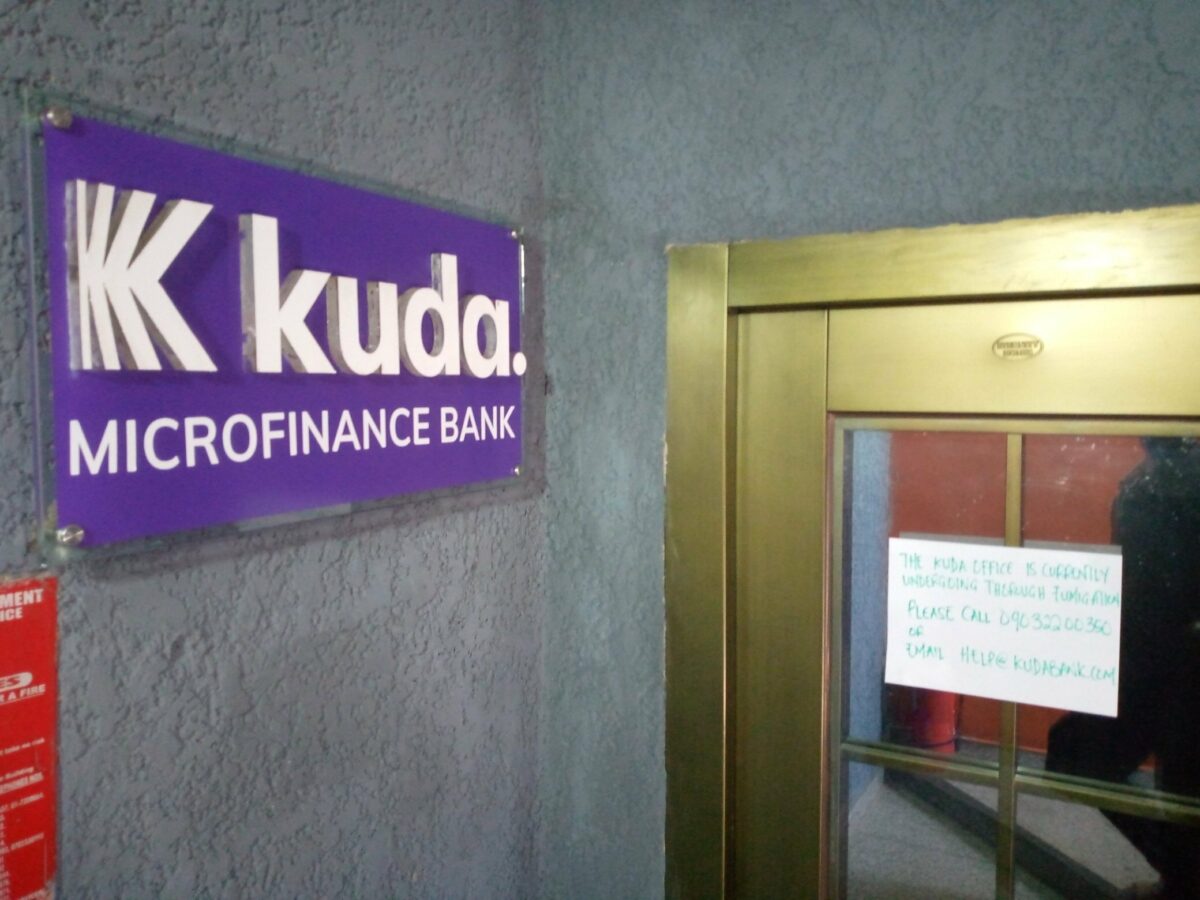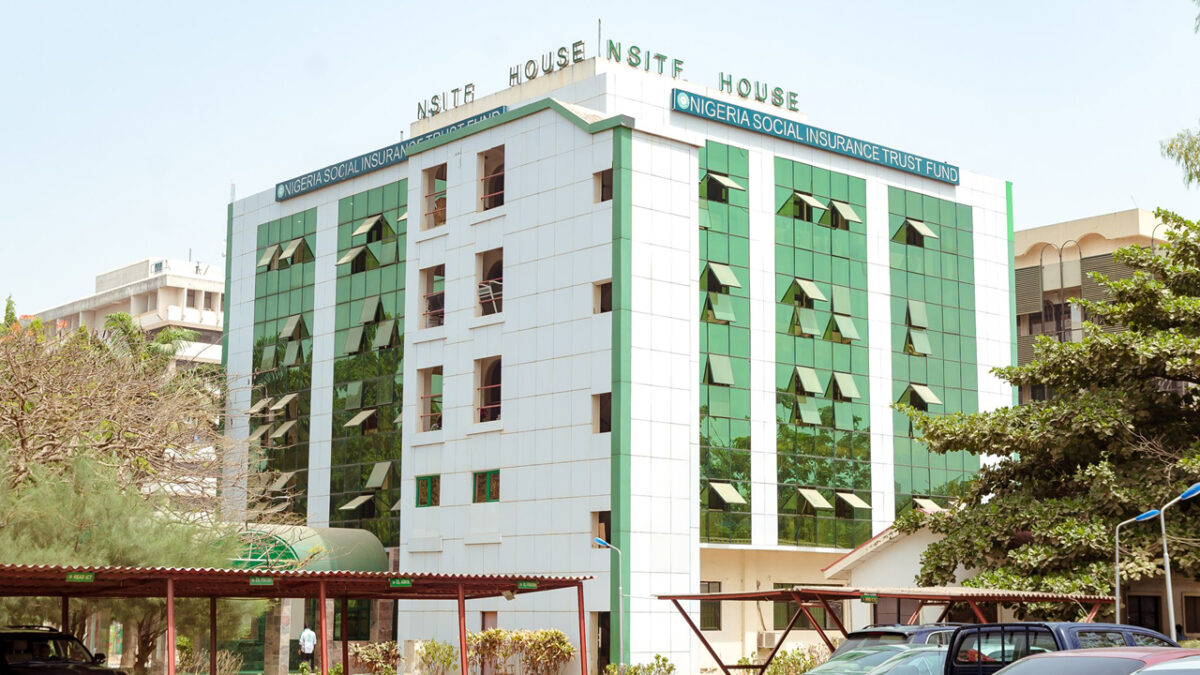When it comes to political office holders in Nigeria, women are as capable of corruption as men.
While 2023 ended with the news of N37.1 billion laundered in the Ministry of Humanitarian Affairs and Poverty Alleviation under Sadiya Umar-Farouk, a former minister, the year 2024 came with another scandal linked to the same ministry.
As seen on the homepage of the ministry’s website, Betta Edu, the minister who took over from Umar-Farouk, vowed that under her leadership, “the Ministry will position itself in light of the prevailing humanitarian situation in the country through its vision, mission and core values to promote human dignity and the integration of basic humane benevolence and compassion in the treatment of all Nigerians”.
However, the reverse seems to be the case, as Edu, who was suspended by President Bola Tinubu on Monday, has been in the news for a N585 million scandal.

In this report, FIJ revisits some of the controversies that have rocked the ministry from 2020 to date.
SCHOOL FEEDING PROGRAMME AMID COVID-19 LOCKDOWN
Overseen by the ministry is the National Home Grown School Feeding Programme (NHGSFP), which aims to deliver a cost-effective home-grown school feeding programme in primary schools.
On the surface, the school feeding programme is laudable, as it will not only increase school enrolment and reduce malnutrition but also provide jobs for the cooks and farmers.
But when the government insisted that it was going to continue the school feeding programme at a time when schools were on hold, many Nigerians questioned the sensibility in that.
In the year 2020, Nigeria, like many other countries in the world, was at the mercy of a complete lockdown triggered by the coronavirus pandemic. When the government declared the lockdown in March, schools, as well as religious organisations, markets and public places, were shut down and movements restricted to curtail the spread of the pandemic. Only essential workers like health workers, ambulance service providers, security operatives and journalists were exempted from the restriction.
Schools did not reopen for physical classes until October 2020. So, when the news about the government’s school feeding spending made it to the media, the major question on the lips of many was: how did the ministry feed school children who were not in school?
Some media reports had claimed that the government spent N13.5 billion monthly on the homegrown school feeding programme across the country during the lockdown, but Umar-Farouq would later deny it, saying the federal government spent about N523.3 million on the programme during the lockdown.
She also disclosed that 124,589 households in the FCT, Lagos and Ogun State benefited from the programme between May 14 and July 6, 2020.
READ ALSO: JUST IN: President Tinubu Suspends Betta Edu Amid N585m Scandal
GRANTS SENT TO PERSONAL ACCOUNTS
A 2022 investigation by the ICIR revealed that the humanitarian ministry diverted multi-million naira rural women grant to personal accounts.
The federal government, through the humanitarian affairs ministry, said it spent N1.01 billion in December 2020 across 15 states for its Grant for Rural Women (GRW) programme.
According to the report, this money was meant for women in rural areas as cash grant during the coronavirus pandemic.
An ICIR investigation revealed that payment receipts showed that Oladapo John Ogunyanmodi, Musa Yusuf Dauda and Devine Sekibo were among the 15 persons who received over N1 billion from the ministry between December 22 and 29.
Paying the money meant for rural women grants into personal accounts violated the provisions of chapter 7, section 713, of the Nigeria Financial Regulations, which states: “Personal money shall in no circumstances be paid into a government bank account, nor shall any public money be paid into a private bank account. An officer who pays public money into a private account is deemed to have done so with a fraudulent intention.”
SCHOOL FEEDING STOPPED IN 2023 DESPITE BUDGET ALLOCATION
A special report published by FIJ in 2023 revealed that Umar-Farouk stopped feeding school children six months before leaving office.
Former President Buhari’s 2023 budget allocated N355 billion to the humanitarian affairs ministry, out of which about N1 billion was appropriated for the school feeding programme.
Before the report went public, FIJ found that the ministry had failed to deliver meals to the beneficiaries of the programme. All efforts to ascertain the reason for this were unsuccessful.
MONEY LAUNDERING
In December 2023, documents obtained from the Economic and Financial Crimes Commission (EFCC) revealed that N37 billion was laundered under Umar-Farouk. The documents revealed that the money was transferred to 38 different bank accounts connected with James Okwete, a contractor, who in turn used part of the money to buy cars and houses.
The EFCC is currently probing the former minister’s involvement in the money laundering.
N585 MILLION PAID INTO PERSONAL ACCOUNT
Edu, the suspended minister, came under fire after an internal memo leaked on January 5 revealed that she approved the payment of N585,189,500 into a bank account belonging to Oniyelu Bridget Mojisola, a civil servant.
The money, paid from the National Social Investment Office’s single treasury account (TSA), was meant for grant for vulnerable groups in Akwa Ibom, Cross River, Lagos and Ogun State.
This is another instance of violation of the Nigeria Financial Regulations, which prohibits the payment of public money into a private bank account.
Subscribe
Be the first to receive special investigative reports and features in your inbox.















